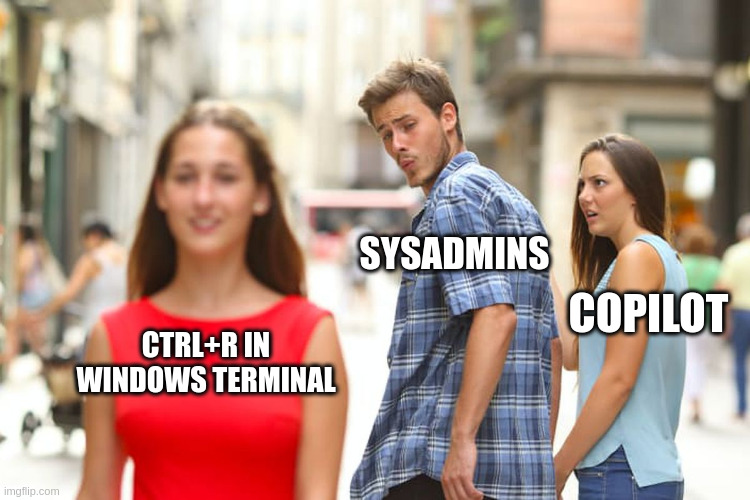Posts
3487Following
717Followers
1584jenny (phire)
phire@phire.placewhat the—and I cannot stress this enough—absolute fuck:
"...sensitive and personal footage captured by [Meta Smart Glasses]—including people going to the bathroom, getting dressed, and having sex—is being reviewed by contractors who see all of it uncensored."
https://gizmodo.com/dear-meta-smart-glasses-wearers-youre-being-watched-too-2000728928
Catalin Cimpanu
campuscodi@mastodon.socialJoshua Rogers has published a good tutorial on how to customize your Firefox right-click menu and remove all the bloat you don't like
buherator
buheratorShow content
https://eternalseptember.bandcamp.com/album/your-computer-lies
Lain Iwakura Bot
lain@cyber.ms📺 Serial Experiments Lain
🗓️ Season: S01E09
🎥 Episode: Protocol
🎬 Directed by: Akihiko Nishiyama
📅 Release Date: August 31, 1998
⏯ Frame: 0269
buherator
buheratorhttp://blog.quarkslab.com/avira-deserialize-delete-and-escalate-the-proper-way-to-use-an-av.html
Craig S. Kaplan
csk@mathstodon.xyzIn my online undergraduate P5.js course, students are about to begin the module on motion and physics, including a bit of physics simulation using Matter.js. It suddenly occurred to me that I had never seen anybody put together this particular demo before, and I realized it had to be done. Messy source code at https://editor.p5js.org/isohedral/full/vJa5RiZWs.
buherator
buheratorbuherator
buheratorJoe Grand
joegrand@chaos.socialA Lifetime of Disobedience (#Disobey2026) slides are up! https://grandideastudio.com/portfolio/library/lifetime-of-disobedience/
CHERIoT Platform
CHERIoT@feedsin.space
Most CHERIoT work to date has been done on software or FPGA simulations. We have several such implementations: The executable model built from our formal ISA specification, the MPact simulator from Google, Microsoft’s CHERIoT SAFE FPGA target for the Arty A7, and of course lowRISC’s beautiful Sonata FPGA board, which is designed to simulate CHERIoT systems. These were always intended to be developing and prototyping systems, so I’m delighted to announce that SCI Semiconductor has the first silicon CHERIoT implementation.
[ Conflict disclaimer: I am a co-founder of SCI Semiconductor. ]
The dev board pictured above contains one of the first batch of ICENI chips to come back from the fab. This is a complete CHERIoT system, with all of the core CHERI properties (spatial memory safety, no pointer injection, and so on) along with all of the CHERIoT extensions that provide deterministic use-after-free protection, auditable control over interrupt state, and everything that we need for an aggressively compartmentalised RTOS.
This chip uses the CHERIoT Ibex core, running at up to 250 MHz, and includes a few feature that accelerate temporal safety, improve interrupt determinism, and so on. These build on top of all of the benefits of any CHERIoT implementation: deterministic mitigation of memory safety bugs from simple buffer overflows up to use-after-free, fine-grained compartmentalisation, and a programming model co-designed with both the ISA and the software stack to provide a tiny TCB. Anything that works on CHERIoT SAFE or Sonata should be very easy to port to ICENI for production use. Anything that runs on the software simulators should just work.
We’ll be showing the chips at Embedded World (Stand 4A - 131) next week and at CHERI Blossoms a couple of weeks later. From tomorrow, one will also be on display in the CHERI 15th anniversary exhibit in the Cambridge Computer Laboratory.
Aside: The Iceni tribe were one of the pre-Roman tribes in Britain and are famous for their chariots (though more due to this statue than historical fact). I am only partially to blame for the bad puns in the naming.
Space Rogue
spacerog@mastodon.socialThe latest episode of 'Where Warlocks Stay up Late" dropped yesterday. Featuring yours truly. The interview goes pretty deep from growing up in Maine, working at Lotus, stories about L0pht you may not have heard before to getting fired from @stake. Probably the most personal interview I have ever given.
Botch Frivarg
deetwenty@todon.nl@soatok in this article you in passing mention something that has frustrated me for some time in software engineering as someone with a bit more of a hardware background, and that is how much important stuff doesn't build on formal specifications, even big infrastructure projects! And when I have brought this up I'm often met with something along the lines of "but that is not very agile" or "we moved away from waterfall". Sure that small backyard shed you can yolo together, but why are we doing the same thing for the highway bridges of the software world?
buherator
buherator#ShowerThoughts
(I'm still considering s/stupid/lazy/g)
tante
tante@tldr.nettime.orgRE: https://tldr.nettime.org/@tante/116170621153319970
Kept thinking about it so I tried to add to it in a quick article. It's about software and love. And Open source.
Kevin Beaumont
GossiTheDog@cyberplace.socialMicrosoft trying to ban the word Microslop being used by customers is sending me 🤣 https://www.windowslatest.com/2026/03/02/microsoft-gets-tired-of-microslop-bans-the-word-on-its-discord-then-locks-the-server-after-backlash/



